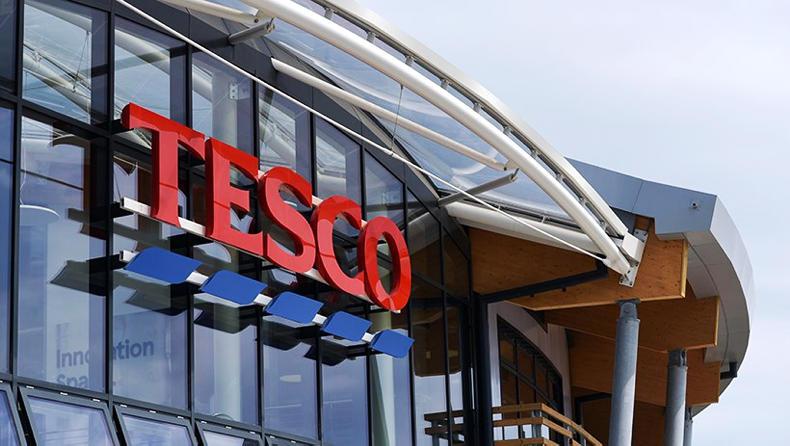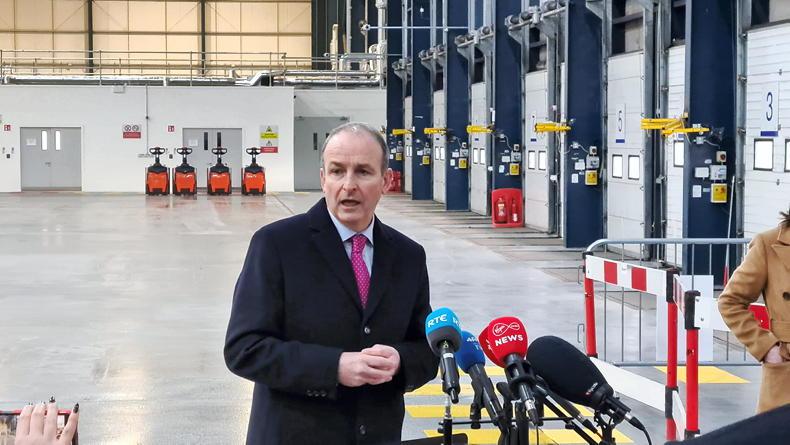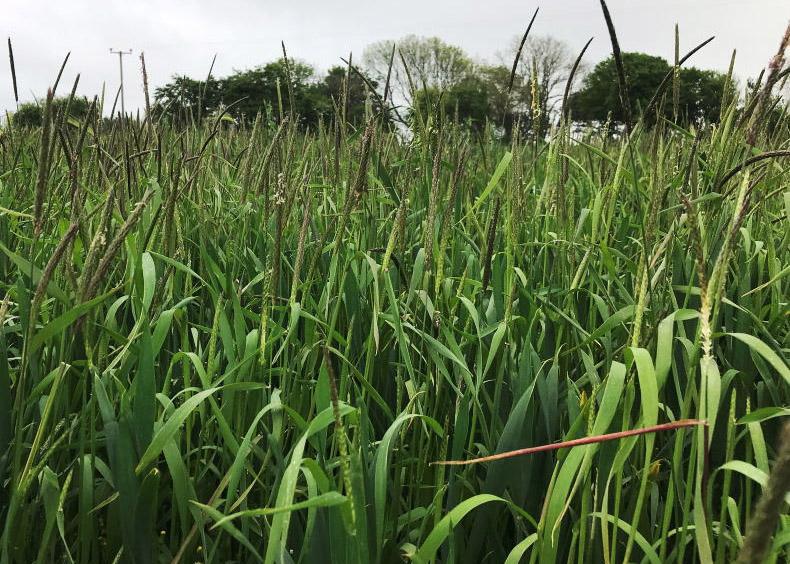As we enter the last week of November, there is a growing realisation that this time Brexit is for real.
There is a general belief that a very basic no-tariff, no-quota trade deal is close. It is still not over the line and the emotional issue of fishing remains to be resolved.
At this stage, the hope is that there will be enough principals agreed to enable the UK to declare Brexit is complete, with the transition period coming to an end on 31 December and the new trading relationship commencing on 1 January.

Even with a basic agreement, trade will be disrupted by additional documentation and reintroduction of inspections at ports of entry.
Of course, Irish farmers and exporters will be wanting the new deal to be as close as possible to the old deal. However, at this stage, that is, at best, wishful thinking.
The issue of customs documentation and veterinary health certificates is unavoidable, as the UK is determined to have maximum flexibility to chart its own course in international trade.
In practical terms, this is the addition of at least two layers of bureaucracy before a product leaves an exporter's yard.
This is followed by making the appropriate declarations to the shipping company and finally, and most unpredictable of all, the inspection process, the intensity of which will be determined by the level of agreement reached.
Canada
The EU-Canada free trade deal is frequently mentioned by the UK as its ambition in negotiations with the EU.
This has limits on quotas for agricultural produce and a full veterinary and customs declaration documentation requirement and an inspection process on entering the EU.
It is a far-from-perfect agreement for the EU, as accessing the Canadian dairy market has proved problematical and there appears less than full compliance by the Canadians in recognition of EU PGIs on cream liqueur brands.
Problem for sausages and burgers
The issue that grabbed considerable publicity this week was the absence of an EU veterinary certificate to cover fresh processed meats.
That means, in practice, products such as sausages and burgers, along with ready meals that use meat as an ingredient, cannot be exported chilled from the UK to EU.
It is expected, though not yet certain, that the UK will replicate the arrangement for imports from the EU.

UK retailers have experienced a surge in business as out-of-home eating has been dramatically reduced by COVID shutdown.
While that will frustrate speciality food businesses, the reality is that it won’t affect volume sales of beef and lamb, as these are mainly exported in a non-processed state and there are also considerable volumes of frozen exports which are covered by veterinary health certificates.
Impact on farmers
There are no upsides for farmers with Brexit, though there may well be a short-term gain as UK importers look to stockpile in case they enter the new year having to pay tariffs because no deal was concluded.
This is considered unlikely, but until it is announced, a doubt remains and, at this stage, five weeks from the end of the year, importers can start stockpiling fresh vacuum-packed product, as well as frozen manufacturing beef.
There is also the added twist of dramatically reduced out-of-home eating because of COVID restrictions and a corresponding increase in retail demand.
This is the basis for climbing Irish beef prices in recent days, with prices in the North surging to around €200 ahead higher.
Read more
Brexit certificate issue won't hit fresh beef sales
Dublin Port ready for Brexit
Exceptional UK beef market as beef price hits €4.22/kg
As we enter the last week of November, there is a growing realisation that this time Brexit is for real.
There is a general belief that a very basic no-tariff, no-quota trade deal is close. It is still not over the line and the emotional issue of fishing remains to be resolved.
At this stage, the hope is that there will be enough principals agreed to enable the UK to declare Brexit is complete, with the transition period coming to an end on 31 December and the new trading relationship commencing on 1 January.

Even with a basic agreement, trade will be disrupted by additional documentation and reintroduction of inspections at ports of entry.
Of course, Irish farmers and exporters will be wanting the new deal to be as close as possible to the old deal. However, at this stage, that is, at best, wishful thinking.
The issue of customs documentation and veterinary health certificates is unavoidable, as the UK is determined to have maximum flexibility to chart its own course in international trade.
In practical terms, this is the addition of at least two layers of bureaucracy before a product leaves an exporter's yard.
This is followed by making the appropriate declarations to the shipping company and finally, and most unpredictable of all, the inspection process, the intensity of which will be determined by the level of agreement reached.
Canada
The EU-Canada free trade deal is frequently mentioned by the UK as its ambition in negotiations with the EU.
This has limits on quotas for agricultural produce and a full veterinary and customs declaration documentation requirement and an inspection process on entering the EU.
It is a far-from-perfect agreement for the EU, as accessing the Canadian dairy market has proved problematical and there appears less than full compliance by the Canadians in recognition of EU PGIs on cream liqueur brands.
Problem for sausages and burgers
The issue that grabbed considerable publicity this week was the absence of an EU veterinary certificate to cover fresh processed meats.
That means, in practice, products such as sausages and burgers, along with ready meals that use meat as an ingredient, cannot be exported chilled from the UK to EU.
It is expected, though not yet certain, that the UK will replicate the arrangement for imports from the EU.

UK retailers have experienced a surge in business as out-of-home eating has been dramatically reduced by COVID shutdown.
While that will frustrate speciality food businesses, the reality is that it won’t affect volume sales of beef and lamb, as these are mainly exported in a non-processed state and there are also considerable volumes of frozen exports which are covered by veterinary health certificates.
Impact on farmers
There are no upsides for farmers with Brexit, though there may well be a short-term gain as UK importers look to stockpile in case they enter the new year having to pay tariffs because no deal was concluded.
This is considered unlikely, but until it is announced, a doubt remains and, at this stage, five weeks from the end of the year, importers can start stockpiling fresh vacuum-packed product, as well as frozen manufacturing beef.
There is also the added twist of dramatically reduced out-of-home eating because of COVID restrictions and a corresponding increase in retail demand.
This is the basis for climbing Irish beef prices in recent days, with prices in the North surging to around €200 ahead higher.
Read more
Brexit certificate issue won't hit fresh beef sales
Dublin Port ready for Brexit
Exceptional UK beef market as beef price hits €4.22/kg












SHARING OPTIONS